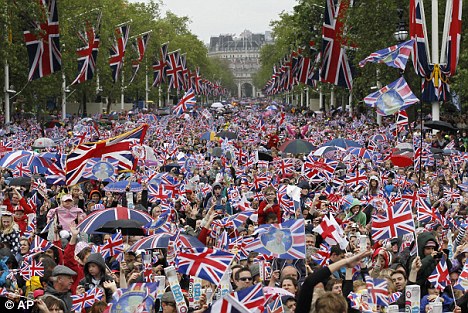
British intellectuals take peculiar delight in emphasising the foreign origins of everything usually linked to Old Blighty. Fish and chips are Jewish. London-born Queen Victoria is of foreign heritage, the BBC points out. One writer even claims that the English language doesn’t exist, branding it a “soup” of French, German and Latin.
"Where people might have once been mildly uncomfortable about signs of English patriotism—not least St George's Cross—there is now outright opprobrium to anyone who likes his homeland."
The trend is not new. As George Orwell had it 80 years ago, “England is perhaps the only great country whose intellectuals are ashamed of their own nationality.” Although the attitude is not reserved to England or even Britain, the pro-foreign tilt among richer folk and treatment of cosmopolitan tastes as high-status is notable on these islands.
This is both a cause and effect of the vote to leave the European Union, which was quietly implemented in January after a deal of hand-wringing. Where people might have once been mildly uncomfortable about signs of English patriotism—not least St George’s Cross—there is now outright opprobrium to anyone who likes his homeland.
Fashionable snorts at Englishness and Britishness have given way to the kind of remarks actual racists make. Most prominent is the “gammon” slur used to describe red-faced, older, working class men with traditional views. Such men are often criticised for having “stolen” the future of the younger, more diverse, credentialed youth who can no longer “work, live and love” in the rump E.U.
The likes of HSBC, a bank whose ethical standards did not prevent it from handling the money of Mexican drug cartels, are even joining in. For over a year the bank’s adverts have claimed that the UK “is not an island,” which is true only in the sense that the UK is comprised of many islands, sharing only one land border in Ulster. Habits flagged in the ads as being notably British include our propensity to drink Colombian coffee, watch American movies, and assemble Swedish flat packs: all things most Western countries do.
It would be wrong to blame left-wingers or progressives entirely for the lauding of the foreign. Right-wingers incessantly bemoan metropolitan elites consuming pretentious coffee and obscure vegetables, effectively marking such activities as high status or aspirational. Set against the cosmopolitan cities are the earthier rural folks with their authentic English traditions, which are made implicitly low status.
As any tourist knows, there is something in the intuition that you have not experienced a place for real if you keep to the city with its familiar comforts and lavish entertainment. Local tourism industries often present themselves as their customers wish to see them, rather than how they are, much as exports are customized for the destination market rather than the place of origin.
The mistake is to claim that only one version of a nation can be authentic. London and Cumberland are both British, just not in the same way. One is a dynamic mixing place for outside influences, the other more settled, if still changing.
Ironically in pointing out the foreign roots of much of British culture, patriotism’s critics buy into something akin to the one-drop theory of race: any foreign influence is deemed corrupting. The reality is that cultures evolve, much like language, until what was once obviously foreign has become domesticated. In the end everything goes native.
This is not to say that all such cultural distinctions are trivial, as any traveller could tell you. But most people are comfortable navigating such changes without needing to draw thick lines. If global citizens continue to fetishize the foreign and spurn the domestic it will only cause more tension between those differently attached to their countries of birth.

